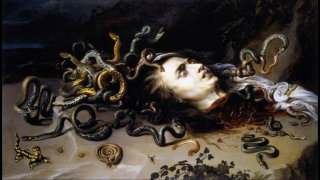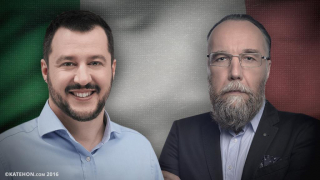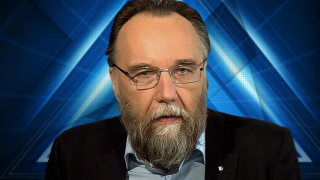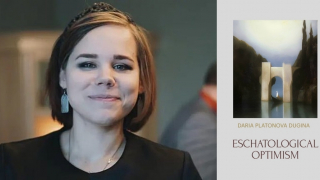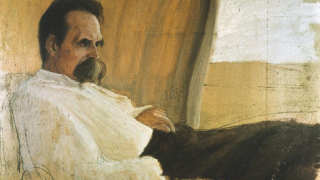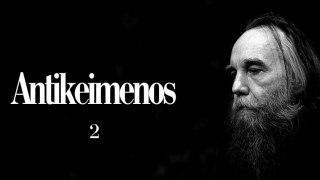Dugin’s Guideline: World Philosophy Day
Translator: Jafe Arnold
Dugin’s Guideline (17/11/2016)
***
Today, the third Thursday of November, on the initiative of UNESCO is World Philosophy Day. This date is rather bureaucratic and its celebration is just a formality. On the whole, World Philosophy Day is something artificial and even foolish which is not worth the attention of a philosopher, not to mention a non-philosopher. But let this be an occasion for reflection: what is philosophy?
There are two erroneous opinions which do not even allow us to approach what philosophy is from a distance. Those who believe that philosophy is only one among many possible human engagements or professions are hopeless. No less hopeless are those who believe that philosophy is a science, or even the most important of the sciences. Such an approach kills philosophy and does not allow one to think about its nature and essence.
Man is thought. All other properties, such as body, mobility, emotions, and sensations, are possessed by other species. What makes a human human is thought. Hence Aristotle’s definition that “Man is a living being possessing Logos.” If you do not possess Logos, you are not a human. A separate discussion would be who you are if you are incapable of thinking. Clearly, not merely an animal. An animal corresponds to its own archetype without thinking, but if a person loses thought, they are sinning against their archetype and find themselves nowhere. They would even still have to try to be a pig or a shark.
Philosophy is the realm of thinking that is so intense that thought turns towards itself and beings to think of thought. Thinking of itself, thought thereby thinks of everything surrounding it in an entirely different manner – in a philosophical manner. Philosophical thinking is the highest of thinking. Therefore, a philosopher is not simply busy with a profession, but penetrates the center of humanness. The philosopher is a human in the full sense of the word. He who is not ultimately a philosopher, or is not a philosopher at all, is not entirely human. Why is man given thought? So that he may think and, in the end, think about thinking. This is the aim of the human being as a species. If a person does not approach philosophy, they abandon their nature and aim, which means that they are on the way to being subhuman. This is what philosophy is: it is that to which all born humans are called. A human is not something given, but a task. And this task consists of the necessity of becoming human, i.e., a philosopher.
Now for the second misconception, which is characteristic of the professional philosophical community. There is nothing more vulgar and repulsive than this professional philosophical community. It is virtually impossible to meet a real philosopher among them. In this milieu, philosophy is regarded as a science, which means almost the same thing as a profession. Yet philosophy is not a science, but that which makes science possible, which lies at its heart, and which endows science with being and reality. Science is the servant of philosophy. As long as the structures of thinking and the standards of knowledge are not set by a philosopher, science simply does not exist. Science comes into play when a philosopher finishes his work. Scientists are migrant workers serving creators and architects – they may be amazing craftsmen or they might be bunglers, but they will always be only and exclusively implementers.
Philosophy lies at the root of science, and when science breaks away from philosophy, it becomes more and more absurd. Science without philosophy is akin to a paranoid disorder, when man fiercely and stubbornly does something, the meaning of which has long since been lost, to the point that all that remains is the irrefutable sense of terror that pushes him towards ever-newer sequences of hysterical reasonings. Philosophy calls this de-ontologization, the loss of the correlation between thinking and being, the oblivion of being. When science ceases to be philosophy, then philosophy becomes science and, as logically follows, both are finished.
The 20th century was the last century of philosophy. It is telling that at the end of the 20th century the historian of science John Horgan declared the end of science. Indeed, this is the case. World Philosophy Day began to be celebrated precisely once not a trace of philosophy was left in humanity. And then all the philosophizing worms, clerks and technologues of all stripes begin to stir. The boss left and the servant arranged the kitchen into what they understood to be the master’s ball.
To paraphrase Hölderlin, Wozu Philosophen in dürftige Zeit? Just like Hölderlin’s poets, the last and true philosophers unbeknownst to the crowds are following the trail of the disappeared solar Logos. And they are deeply hidden in the “sacred night” – in heiliger Nacht.
Source - https://eurasianist-archive.com/2019/11/21/dugins-guideline-world-philosophy-day/



